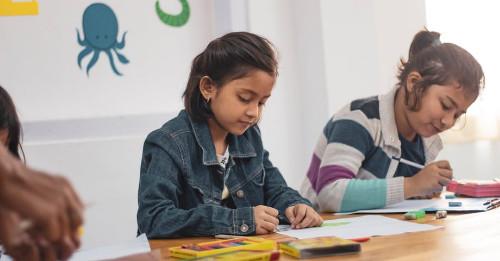8 Ways to Make Your Mindfulness Program Religiously Inclusive

The following article is an excerpt from a bonus resource called "Mindful Awareness Education In Schools: Creating Programs Of Integrity" shared by Laura Bakosh during the 2019 Mindfulness@ Work Summit. Thank you to her as well as the others who worked on these recommendations.
The original recommendations were to discuss education, mindfulness, social-emotional-learning, social-justice, law, and religion in mindfulness education in public schools. A number of public schools have faced legal action concerning mindfulness and religion over the last several years. We believe that the topic of mindfulness and religion has been most thoroughly explored in the public school setting and can provide useful guidelines for mindfulness in the workplace. We've excerpted the recommendations that apply to religion.
Recommendations for Programs:
- Research Based - Utilize the most current research regarding effectiveness of mindfulness education for attention, self-regulation, health and well-being. Use care not to overstate the benefits identified in the literature. Ensure program content is well grounded in theory and in the evidence-base of what works.
- Science Based - Utilize knowledge from current scientific research and professional literature to support program content. Ensure the purpose and intention of exercises and activities used in the classroom are well-founded in this knowledge. Be prepared to clearly communicate this information to facilitate better understanding of what is being taught, and why it is being taught in the classroom.
- Universal Language - As with all school programs, ensure that words and actions are meaningful to all people. It is important for all who teach in public schools to not make implicit or explicit references to their personal spiritual or religious beliefs or practices. Examples of words that might relate to one's own personal beliefs are: bless (blessing, blessed), Amen, Namaste, Om, God, heaven/hell, sin, karma, prophet, Christ, Buddha, prayer, Jesus, chanting or mantras. Also, avoid actions such as prayer hands, mudras, bowing, sign of the cross or other religiously-based hand signs.
- Not Imposing Religion - It is important for all those in public schools to not implicitly or explicitly teach about their own personal religion or belief systems. Do not use props or objects that could be associated with organized religions. For example, do not to use sound bells, bowls or cymbals that are typically used in religious ceremonies.
- Not Limiting Religion - Be inclusive in the way we teach, make sure to never limit or invalidate the belief systems of others.
- Not Imposing Belief Systems - Be conscious to not implicitly or explicitly impose worldviews or particular cosmologies.
- Diversity Conscious - Be aware of teaching in such a way that all students will find the material being taught as accessible. Ensure awareness and sensitivity to cultural and linguistic differences.
- Never Mandatory - Students and teachers are offered the option of not participating, or of observing the activities and exercises without participating. Ensure this possibility can occur without stigmatization or other unintended consequences.
The full article may be found here.
Click here for a shortened version of the debate at the 2019 Mindful Leadership Summit where Candy Gunther Brown, Ph.D. and Barnaby Spring discussed the question, are mindfulness practices religious and do they belong in public institutions?
Recommendations developed by Sunny Wight of Mindfulness First, Fiona Jensen, Adria Kennedy, Katie Medlar of Calmer Choice and Daniel Rechtschaffen. Summit attendees and contributors included Ali Smith of the Holistic Life Foundation, Laura Bakosh and Janice Houlihan of Inner Explorer, Dr. Clemens Bauer Hoss from MIT, Jane Hsu and Tom Roepke from the NYC School System, Leslie Booker from the Lineage Project, Lori Gustafson from the Center for Healthy Minds at the University of Wisconsin-Madison, Sheryl Petty of Movement Tapestries, Dr. Michael Crowley from Yale University, Randy Fernando, Dr. Christopher Willard, Dinabandhu Sarley of the 1440 Foundation, Larry Brown from Cape Cod Academy, Michael Craft from the Omega Institute, Reverend Samuel Speers from Vassar University and Susan Kaiser Greenland.

0 comments
Leave a comment